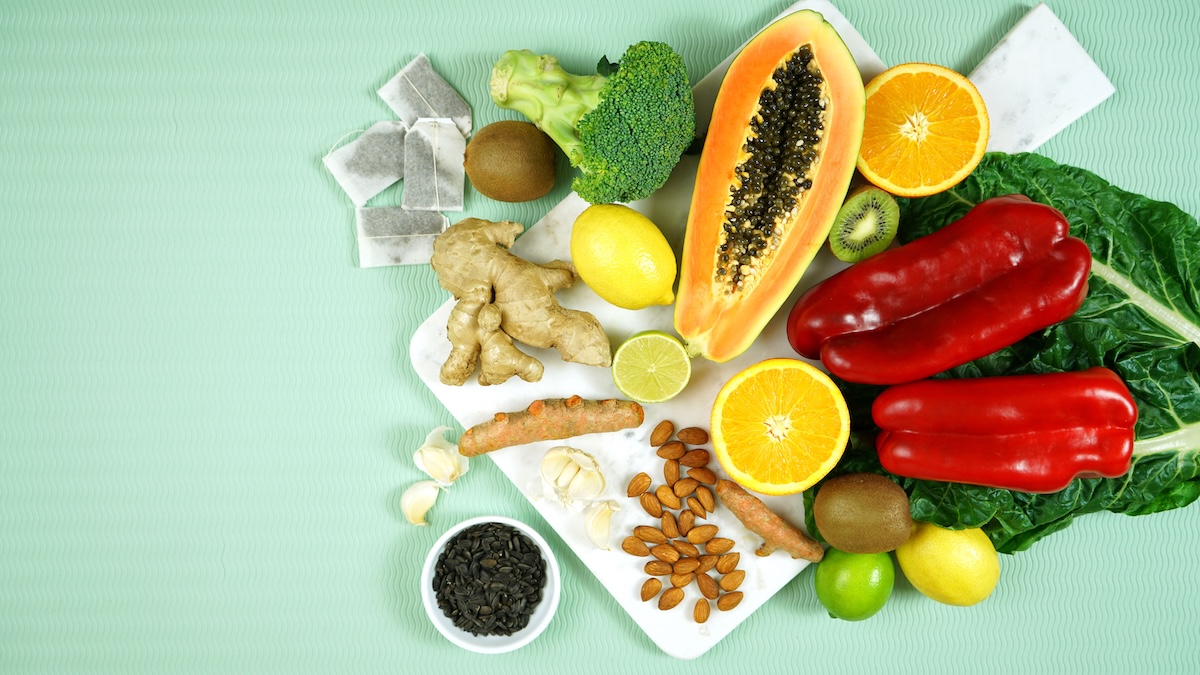
5 Best Anti-Inflammatory Foods That Can Help You Feel Better Fast
If you’ve been feeling bloated, sluggish, or just not quite like yourself, there’s a good chance inflammation is at play. Chronic inflammation has been linked to fatigue, joint pain, gut issues, and hormone imbalances—and what you eat plays a crucial role in either fanning or fighting it.
Most people don’t need to completely overhaul their diet and lifestyle to reduce low-grade inflammation. Understanding what foods may be triggering an inflammatory response can help you identify better alternatives, and adding in anti-inflammatory ingredients can make a big difference in how you feel. While these swaps are likely to provide some immediate improvement, consistency is key. Find what triggers inflammation for you (this is often more than just food) and make sustainable changes to your daily habits.
Here are five anti-inflammatory powerhouses you can start incorporating into your meals this week to give you a head start.
Turmeric
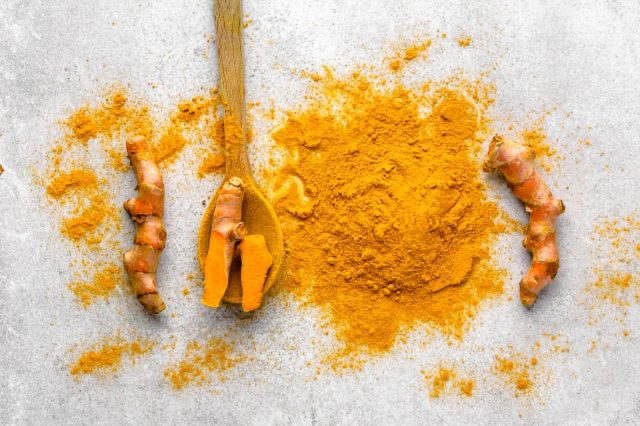
Turmeric has earned its superfood status thanks to curcumin, its active compound with potent anti-inflammatory and antioxidant effects. Research shows that curcumin can significantly reduce markers of inflammation such as CRP and TNF-alpha. The US Food and Drug Administration has deemed curcumin is safe to consume and trials have reported beneficial effects on inflammation.
How to use it: An easy way to incorporate turmeric into your existing meals is to add it to your seasoning blend when cooking protein or roasting veggies. You can purchase dried turmeric powder or find fresh turmeric at your local Asian grocery store.
Ginger
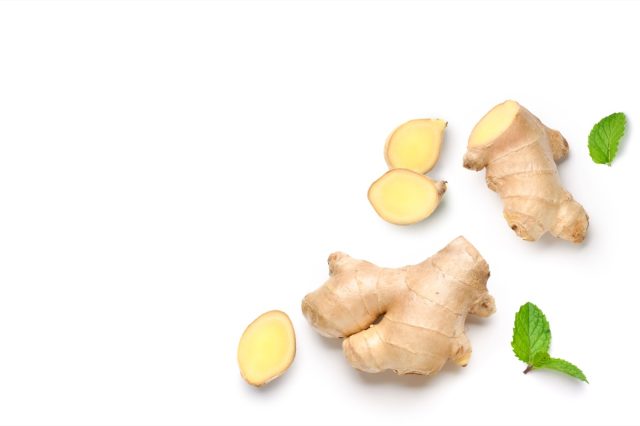

Ginger isn’t just helpful for easing nausea—it’s a potent anti-inflammatory with clinically supported benefits across a range of chronic conditions. By supporting the immune system and calming internal stress in the body, ginger is a great ingredient for managing systemic inflammation and easing its common symptoms like joint pain, bloating, and fatigue.
How to use it: Like turmeric, ginger is available as a dry powder or a fresh root. For the most benefit, grab a fresh knob of ginger and try one of these easy methods: brew it as a tea with hot water, lemon, and honey; blend it into a fruity smoothie for a spicy kick; or grate it into stir-fries, salad dressings, or marinades.
Chia Seeds
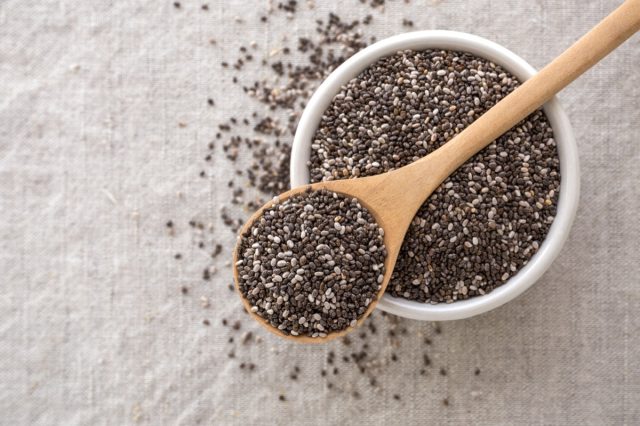

Around 20% of a chia seed is made up of protein, and when digested, some of those proteins can actually help reduce inflammation in the body. These proteins work by calming the immune system’s inflammatory response and protecting cells from oxidative stress. Certain compounds in chia seeds have been shown to lower levels of harmful inflammatory markers. Plus, they’re packed with fiber and omega-3 fatty acids, which support digestion, balance blood sugar, and reduce overall inflammation.
How to use it: Add a tablespoon of chia seeds to your oatmeal, blend them into smoothies, or make a simple chia pudding by soaking them in almond milk and topping with berries.
Sweet Potatoes
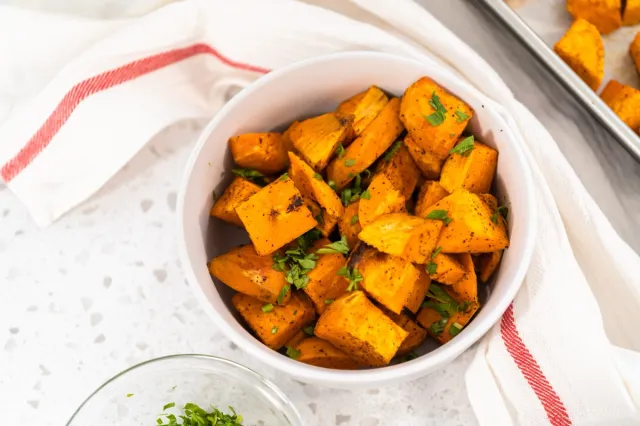

Sweet potatoes contain polyphenols, which have been shown to have antioxidant and anti-inflammatory effects. They are also a great source of fiber and complex carbohydrates that support hormone balance and stabilize blood sugar, which is especially important for women during the luteal phase of the menstrual cycle when energy needs increase.
How to use it: Roast sweet potatoes with olive oil and rosemary, mash with garlic and herbs, or dice cooked sweet potatoes into salads for a nutrient-dense carb source.
Green Tea


Just like sweet potatoes, green tea is packed with polyphenols—natural plant compounds that help fight inflammation. The main type in green tea is called catechins which acts as a powerful antioxidant to fight free radicals, reduce stress on your cells, and support your body’s natural detox systems.
How to use it: Try swapping your second coffee for a cup of green tea in the morning, sip it iced in the afternoon, or whisk up some matcha with hot water or oat milk for an antioxidant-rich boost.
Small swaps to fuel your anti-inflammatory lifestyle


Inflammation plays a role in many of the everyday symptoms we tend to overlook—like low energy, poor digestion, or brain fog. While no single food is a cure-all, small, consistent choices can influence how your body feels and functions. Including a variety of anti-inflammatory ingredients like these in your weekly meals is a simple, realistic way to support your health from the inside out. Think of it less as a strict diet and more as a shift toward eating in a way that helps your body work with you—not against you.
Kristina Turnure, MS, ACSM, ISSA











